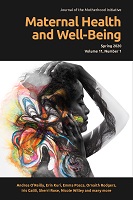Beyond Victims: Motherhood and Human Rights
Abstract
This article discusses specific cases in which women’s reproductive capacity and maternal roles have resulted in human rights violation. It finds that in the context of genocide, women and girls may be specifically targeted because of their reproductive capacity; in assimilationist contexts, mothers may be targeted because of perceptions about their gendered role in the transmission of culture; and women’s gendered role of caring for children and the elderly may also increase their vulnerability to harm in some contexts. The role of mothers’ groups who work for justice in the aftermath of human rights violations is also discussed. Such activism falls within the range of socially acceptable behaviour by mothers, but some dismiss it as innately conservative and limited. It is important to recognize the range of roles that women (and mothers) undertake in the context of human rights violation, extending beyond that of victim, to ensure that women’s agency and activism are recognized.Downloads
Published
How to Cite
Issue
Section
License
All intellectual property in relation to material included on this site belongs to the Motherhood Initiative for Research and Community Involvement (MIRCI). All material on this site is protected by Canadian and international copyright and other intellectual property laws. Users may not do anything which interferes with or breaches those laws or the intellectual property rights in the material. All materials on the Motherhood Initiative for Research and Community Involvement (MIRCI) are copyrighted and all rights are reserved. Any reproduction, modification, publication, transmission, transfer, sale, distribution, display or exploitation of the information, in any form or by any means, or its storage in a retrieval system, whether in whole or in part, without the express written permission of the Motherhood Initiative for Research and Community Involvement (MIRCI) is prohibited. Please contact us for permission to reproduce any of our materials. This site may include third party content which is subject to that third party's terms and conditions of use.


